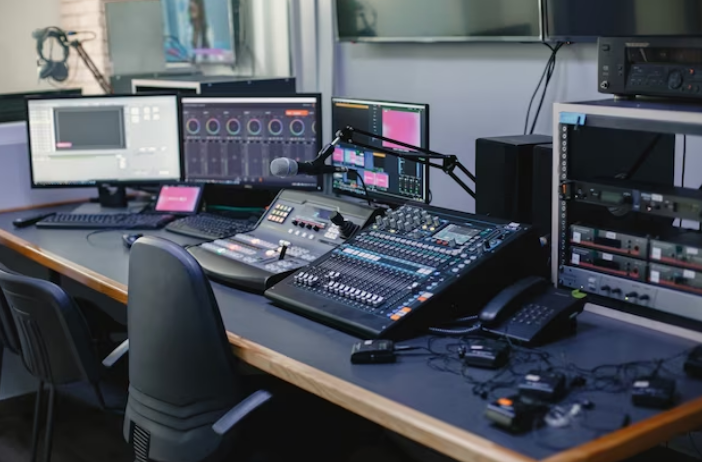- September 26, 2023
A Tale of Two Audiophiles: The Art of Sound Editing and the Symphony of Sound Mixing

For any type of recording, sound editing and sound mixing are two crucial steps in the post-production process. Sound editing is the procedure of selecting, putting together, and modifying sound effects, speech, and music to produce the final audio setting for any particular project. While, sound mixing is the process of balancing and modifying all of the levels of different sounds in a project to produce a seamless and immersive soundscape.
The Difference between Sound Editing and Sound Mixing
What’s the difference between the two? Here is the information provided by experienced post production sound studios:
Objective:
Sound editing focuses on shaping and manipulating individual audio elements to enhance their quality, clarity, and impact. It involves working with raw audio recordings and making them ready for mixing.
Sound mixing is the process of taking the edited sounds and combining them to create a seamless and well-balanced soundtrack. The objective is to produce a cohesive aural experience that supports the project’s visual components.
Tasks:
Sound editors edit audio tracks by eliminating unwanted noise, clicks, pops, and other issues. They also adjust the levels of individual elements including dialogue, music, and sound effects to ensure they are clear and balanced. Sound editing may involve time-stretching or pitch-shifting to match the desired timing or tone.
Sound mixers make adjustments to audio elements’ volume levels, spatial positioning, and adjustment to make sure they blend well together. They also apply effects like reverb and compression to achieve the desired sound quality and atmosphere.
Creativity:
Sound editing can be a highly creative process. In order to match the project’s mood and tempo, it frequently requires producing or choosing sound effects, adding Foley, and selecting suitable music tracks.
Sound mixing is a creative process that requires a deep understanding of storytelling and emotional impact. Mixers make artistic decisions to emphasize key moments, create mood, and enhance the overall auditory experience.
Tools:
Sound editors use digital audio workstations and various audio processing plugins to perform tasks like noise reduction, equalization, and spatial processing.
Sound mixers use specialized mixing consoles or DAWs with extensive mixing capabilities. They work with multiple tracks and often employ automation to control parameters over time.
Focus:
The primary focus of sound editing is on individual elements within the audio, making them sound as clean and polished as possible for the mixing stage.
The primary focus of sound mixing is on the final auditory experience, ensuring that all audio elements complement each other and synchronize seamlessly with the visual aspects of the project.
Sound Editing in Los Angeles
Some of the world’s top sound editors and sound mixers are based in Los Angeles. This is an excellent place to start if you’re interested in a career in sound mixing and editing.
There are also many opportunities to network with other professionals belonging to audio post production companies. These experts are specialized in bringing sound to life and are passionate about elevating your project through the power of sound.
Best Digital Marketing Consultant. I have more than 5 years of experience in SEO, SMO, PPC and Internet Marketing.